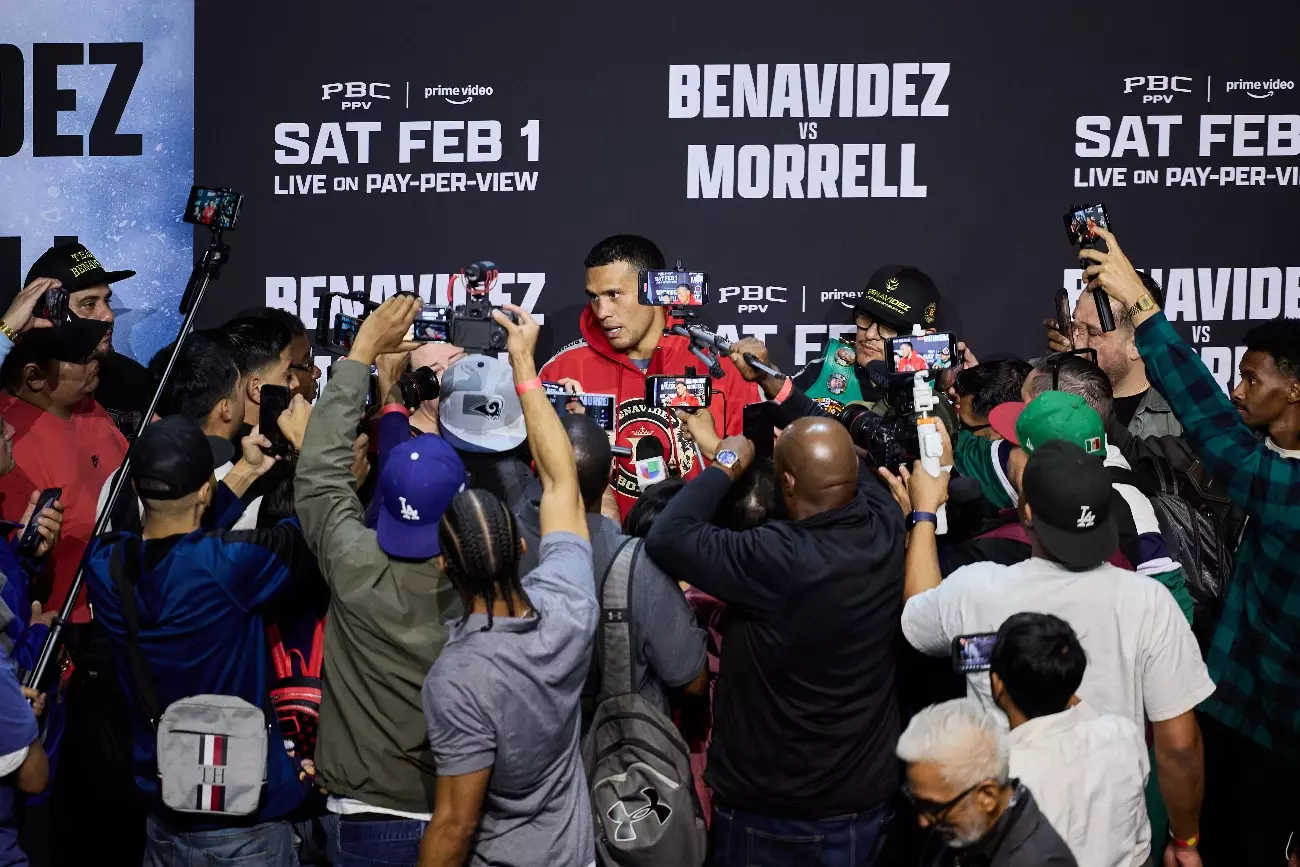The upcoming clash between David Morrell and David Benavidez on February 1st has generated significant buzz in the boxing community. Not only does it mark a pivotal moment in the careers of both fighters, but it also raises questions about experience, skill, and the potential for future greatness. As former boxing champion Tim Bradley weighs in on the matchup, his insights prompt a deeper examination of Morrell’s readiness and Benavidez’s capabilities.
Tim Bradley’s commentary suggests a palpable disparity in experience between the two fighters. He highlights Morrell’s extensive amateur background, positing that the Cuban fighter has faced a higher caliber of competition in his approximately 130 to 135 amateur bouts compared to Benavidez’s professional experience. Critics might argue that Morrell’s amateur pedigree equips him with raw talent and skill that could potentially outshine Benavidez’s experience in the pros. However, Bradley contends that while Morrell may be more seasoned in terms of facing skilled opponents, his time in the professional ring is significantly shorter.
The nuance of experience can be critically assessed in the context of fight preparation. Morrell’s prior bouts might suggest he has a wealth of techniques at his disposal, but it’s essential to consider how effectively he can apply this knowledge against a seasoned opponent like Benavidez. For many, the transition from amateur to professional boxing also involves adjustments in strategy, pacing, and mental fortitude, elements that can drastically change outcomes in high-stakes matches.
One of the focal points in Bradley’s analysis is the knockout power of both fighters. He suggests that Morrell’s reputation as a potent puncher could pose challenges for Benavidez, particularly if the latter falls into the trap of relying on volume punching rather than precision. The outcomes of their previous fights seem to support this theory; Benavidez has been praised for his combination punching and pressure tactics. Still, against more power-oriented fighters, the ability to maintain control while absorbing heavy hits is crucial.
While Benavidez is undoubtedly a formidable presence in the ring, his performance against former WBC light heavyweight champion Oleksandr Gvozdyk raises questions about his knockout capabilities as he transitioned to the 175-pound division. His struggle to assert dominance in that match shifts the narrative toward Morrell, who has consistently showcased a knack for landing impactful strikes. Thus, a potential strategic shift for Morrell to aim for knockdowns rather than simply points could play a significant role in swaying the match in his favor.
Analyzing the boxing styles of both fighters reveals the intricacies that may come into play during the match. Bradley characterizes Benavidez as a pressure fighter, focusing on aggressive forward movement. However, his analysis suggests Benavidez’s range is primarily limited to linear aggression, which may very well be utilized against stationary targets. In contrast, Morrell, having encountered diverse fighting styles throughout his amateur career, may possess the adaptive skills necessary to counter Benavidez’s straightforward approach.
Bradley rightly points out that Morrell thrives against fighters who fit into his desired rhythm. However, he’s also faced challenges against less predictable opponents. Assuming Benavidez heeds Bradley’s insights and diversifies his strategy, this may complicate Morrell’s performance in the ring. For Morrell to emerge victorious, he will likely need to combine his power with tactical evasiveness and strategic countering, creating opportunities to exploit any lapses in Benavidez’s approach.
The stakes for both fighters extend beyond this singular match. Each hopes to position themselves for a shot at an undisputed championship. For Benavidez, that dream hinges on maintaining his unbeaten record. A loss against Morrell could dim his prospects significantly while shattering the narrative of invincibility he has cultivated. On the other hand, a win for Morrell not only affords him a critical victory but also pushes him closer to elite status in light heavyweight boxing—further validating the considerable potential that his amateur experience suggested.
The upcoming fight between David Morrell and David Benavidez is packed with intrigue, primarily revolving around experience, punching power, strategy, and future implications. While Tim Bradley raises pertinent points about Morrell’s readiness and Benavidez’s potential advantages, the unpredictable nature of boxing creates a landscape filled with possibilities. As fans await February 1st, the defining question remains: which fighter will rise above and seize their dreams of championship glory? The answer may reside in their ability to adapt and execute their strategies in a high-octane atmosphere filled with pressure and expectation.


Leave a Reply